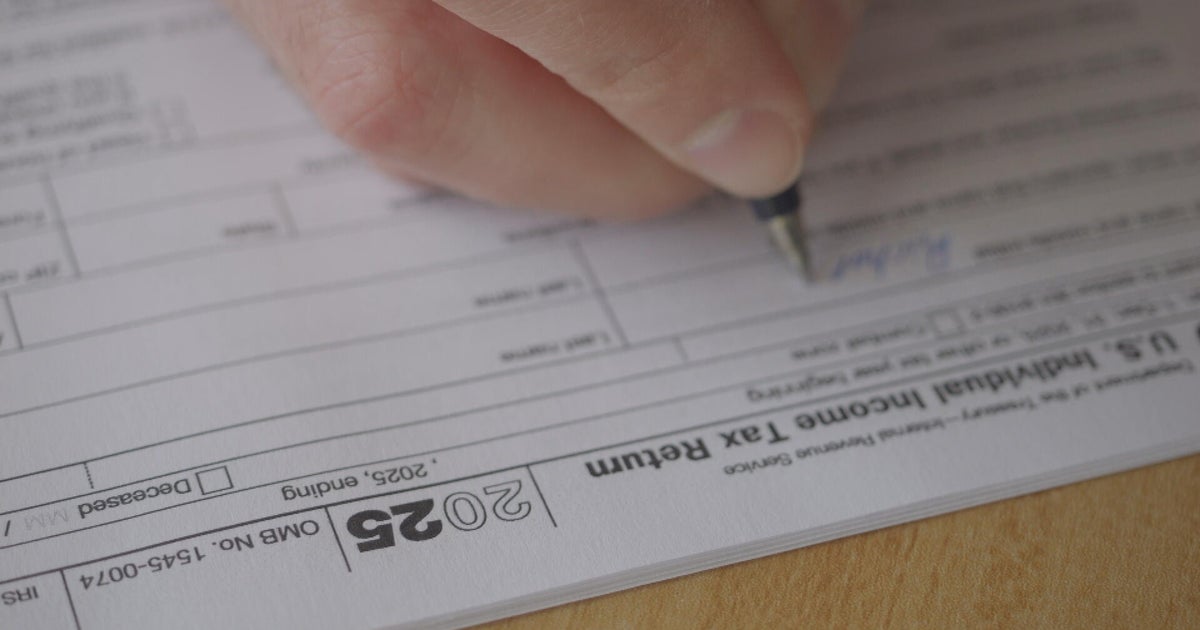How to get help with IRS tax debt, according to experts
Many Americans are gathering their tax documents with the April 15 federal tax filing deadline fast approaching.
Most taxpayers overpay during the year and receive a refund, as roughly 64% of tax returns processed before April 28, 2023, resulted in a tax refund. But even with the best-laid plans, it's easy to accidentally end up with a tax debt. Miscalculating and underreporting your income, for example, is a common reason many people owe the IRS. Similarly, underestimating self-employment taxes or being unaware of new income tax rules can lead to an unexpected tax liability.
No matter the reason, receiving a tax bill from the IRS can be stressful, especially considering the potential penalties. The non-payment penalty is 0.5% of the due amount each month—up to 25%— until the balance is repaid. If the IRS doesn't hear from you and the non-payment continues, the agency may garnish wages or even place a lien on your property.
While IRS tax debts can feel overwhelming, it's important to take action and get help if you can't afford to pay off the entire debt when you file.
Start by exploring your tax debt relief options online.
How to get help with IRS tax debt, according to experts
Here are some expert-backed solutions to help you satisfy your tax obligations.
File your taxes, even if you need an extension
Inaction is your enemy when you owe money to the IRS. Ignoring the problem will only make matters worse.
"Make sure to file your tax return on time, even if you can't pay the full amount," says Paul Miller, CPA and founder of accounting firm Miller & Company. "Not filing on time can lead to extra penalties, and that's just extra stress you don't need. So, send in your return on time, and if you need a bit more time, ask for an extension."
Learn more about your tax relief options here.
Request a payment plan
It's also critical to keep open lines of communication with the IRS. If you can't pay your tax bill, be proactive and let them know why and promptly answer any communication you receive from the IRS. Otherwise, the agency will take the next step to collect the debt, including taking money from your bank account or placing a lien on your home.
The IRS explains how it's possible to reach such severe collections actions on its website, saying: "You have a balance on your tax account. A notice was sent to you previously letting you know how much you owe, when it was due, and how to pay. Since the IRS did not hear from you, it is continuing with its collection process by issuing a levy or conducting a seizure."
Leslie Tayne, a financial attorney and founder of Tayne Law Group, advises reaching out to the IRS as soon as possible to explore your options. "They might include an installment agreement, an offer in compromise—where you settle your tax debt for less than the amount owed—or temporarily delaying collection if you can prove financial hardship," says Tayne.
Make an offer in compromise
If paying your tax debt would create a financial hardship for you or your family, consider submitting an offer in compromise. This offer is an agreement between you and the IRS to settle your tax debt for less than the amount owed. However, you must be able to show the tax bill would cause serious financial strain to your household.
As part of the review process, the IRS will assess your unique financial situation, including your income, expenses and assets. The IRS says it may approve an offer in compromise "when the amount you offer represents the most we can expect to collect within a reasonable period of time."
If you're unsure of your qualifications, the IRS provides a pre–qualifier tool to help you gauge your eligibility for tax relief.
Get help from Taxpayer Advocate Service
If you're having trouble resolving your tax debt through normal IRS channels, you can receive free assistance from the Taxpayer Advocate Service (TAS). The TAS aims to help you resolve your tax issues with the IRS and also advises how to prevent future tax debt problems.
Consult a tax professional
It's wise to get help sorting through tax debt issues and dealing with the IRS from a certified public accountant (CPA). A good CPA knows the tax code and how to best navigate the IRS collection process.
While you can resolve tax debt issues yourself, you may prefer to enlist a tax debt relief service to do it for you. These services negotiate with the IRS to help resolve your tax debt.
Due to some bad actors in the tax relief industry, it's crucial to investigate any company you're considering working with. "It is important to be comfortable with a tax relief company and the services it offers before proceeding with an engagement," says certified public accountant Thomas Brock.
"Make sure any firm you entertain has a long business history, extensive experience managing tax debts and favorable user reviews." Brock also recommends making sure the company is a member of the American Society of Tax Problem Solvers (ASTPS), the National Association of Enrolled Agents (NAEA) or the National Association of Tax Professionals (NATP).
Explore some top debt relief companies here now.
The bottom line
Owing money to the IRS can be stressful, but understanding your options and being proactive can help lead you toward a tax debt solution. While dealing with the IRS isn't anyone's idea of fun, communicating with the agency is essential to finding workable solutions and strengthening your financial health.




